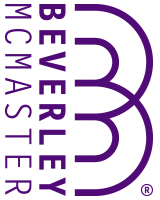The Art of Leadership is in the Pause. I’m not sure whether I have read this somewhere or whether this is an original thought of my own.
I don’t suppose it matters much from whence it came. Just, can I pause here long enough to observe? Can I pause here long enough to re-collect myself? Can I pause here long enough to fully let go that conversation before entering into this one? Can I pause here long enough to come fully present into the next moment?
How often during the day do you task switch, or conversation switch? How often in the day do you move from meeting to meeting without a pause? Even a 20 second pause.
A pause in which you bring attention back to the feltness of your body, back to your feet, your legs, your sit bones, your belly, your breath, your back, your rib cage, your neck, jaw, cheekbones, eyes, your head.
A pause in which your body literally lets go of what just momentarily came before, and a pause in which you can right now come back to the present moment.
Just for a second. And then you stay a second longer.
Noticing the impulse to move to the next thing, and waiting, just a second longer.
And when you feel the vestiges of what just went before melt away maybe only just for now, then you move.
Can YOU Pause?



















